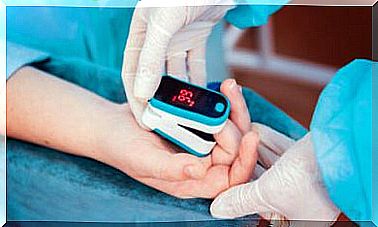What Is Magnesium Sulfate And What Is It For?
Magnesium sulfate is a chemical compound whose formula is Mg SO4 · 7H2O. It is used to prevent and treat seizures in women with severe eclampsia and pre-eclampsia. However, it is not indicated for other types of seizures. Likewise, it can also be used to treat problems derived from magnesium deficiency in the body.
But what is magnesium sulfate? Well, magnesium sulfate is an essential mineral for health, since it is essential to balance the central nervous system. If you are interested in knowing more about it, then do not stop reading everything that we are going to tell you below.
A little more about magnesium sulfate

Epsom salts are one of the forms in which magnesium sulfate is traded. Another form is Sedlitz salts.
Administered orally, once you take the sulfate, it reaches the stomach, where it is transformed into magnesium chloride so that the metabolism can assimilate it. It can be administered orally or parenterally. The dose of magnesium sulfate must be individualized for each patient, based on medical criteria.
Magnesium has an antispasmodic, anti-tetanus and calming effect. This mineral acts on the heart, extending the conduction time and prolonging the irritability of the heart muscle. The activity of magnesium sulfate is due to the fact that magnesium decreases neuromuscular transmission and neuronal excitability.
Indications
Magnesium sulfate is a good supplement when it comes to cleaning the blood, purifying the liver in specific situations and relieving muscle pain, also serving as a laxative.
It is used to treat the seizures of pre-eclampsia and eclampsia. Eclampsia is a disease typical of pregnancy; it is the cause of a notable increase in maternal and perinatal morbidity and mortality rates.
Magnesium sulfate is also being studied for its ability to prevent the toxic side effects of certain drugs used to treat colorectal cancer.
Therefore, the main indications for magnesium sulfate are as follows:
- Prevention and treatment of eclampsia and severe pre-eclampsia.
- Purification of the blood and liver in specific situations.
- Reduction of fatigue and relief of muscle aches.
- Nerves and skin toning.
- Regulation of the heartbeat.
- Improved cognition and thinking.
Possible side effects

Magnesium sulfate, like any other drug, can cause some side effects. Common side effects include the following:
- Hypothermia.
- Allergic reaction.
- Loss of reflexes.
- Hypotension and fainting.
- Weakness, lack of sensation, or loss of muscle control.
- Respiratory depression as a consequence of neuromuscular blockade.
Contraindications to the use of magnesium sulfate
Magnesium sulfate has contraindications that should be considered before starting treatment. These include:
- Heart attack.
- Severe kidney failure
- Hypersensitivity to the compound.
- Tachycardia and heart failure.
- Administration together with quinidine derivatives.
If you are pregnant, you know that magnesium sulphate is a qualified risk category D medication. This means that there may be damage to the baby at the bone level if this drug is taken during pregnancy at intervals of more than 5-7 days. For this reason, it is important for your doctor to know that you are pregnant or planning a pregnancy.
Magnesium sulfate interactions with other medications
In magnesium sulfate treatments, possible interactions must be taken into account if it is administered together with certain medications.
If used with opioids, hypnotics and barbiturates, there may be a prolongation of neuromuscular blockade and there may be a risk of respiratory depression.

Caution must be exercised with digitalis drugs and glycosides and do not administer together with calcium salts. It is recommended to administer magnesium sulfate at a maximum rate of 150 mg / min.
In situations of mild or moderate renal insufficiency, the dose must be adjusted. You always have to monitor blood pressure, kidney function and magnesium. On the other hand, it is necessary to suspend treatment in cases in which hypotension is triggered, in case of disappearance of the patellar reflex, myasthenia gravis or Eaton-Lambert syndrome.
In conclusion, magnesium sulfate is effective in preventing seizures in both mild and severe pre-eclampsia. The World Health Organization (WHO) recommends the administration of magnesium sulfate to prevent eclampsia in women with severe pre-eclampsia. However, it is also used for other indications.









